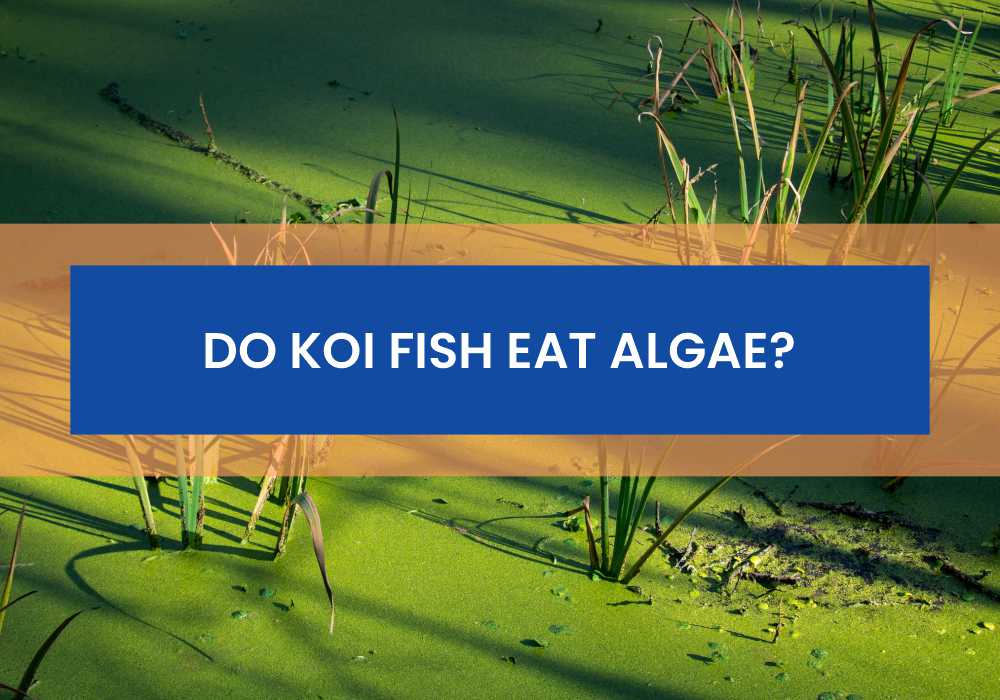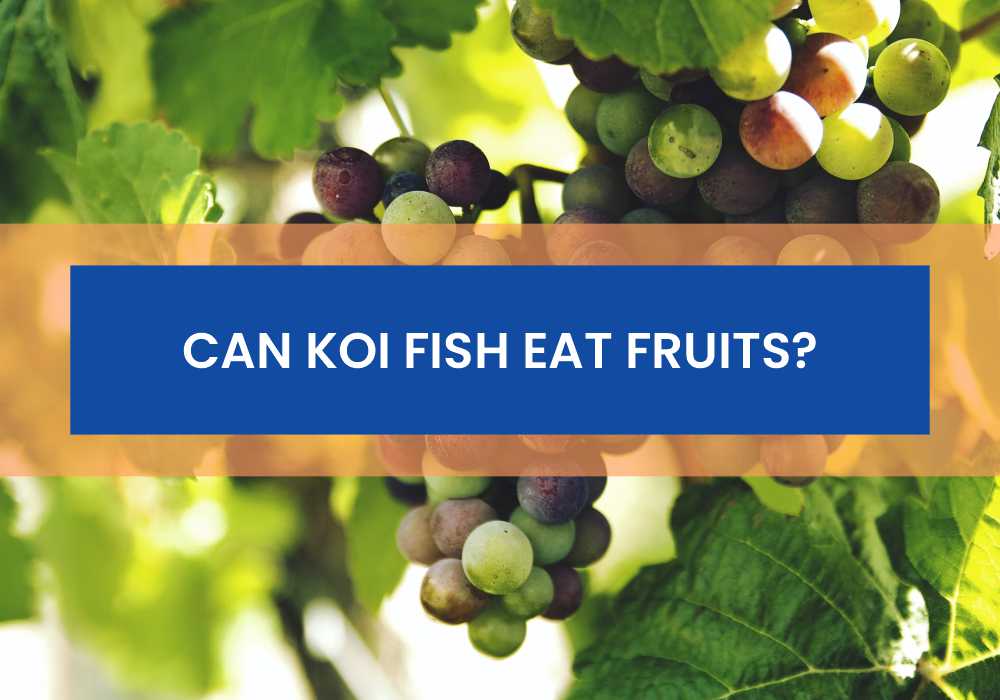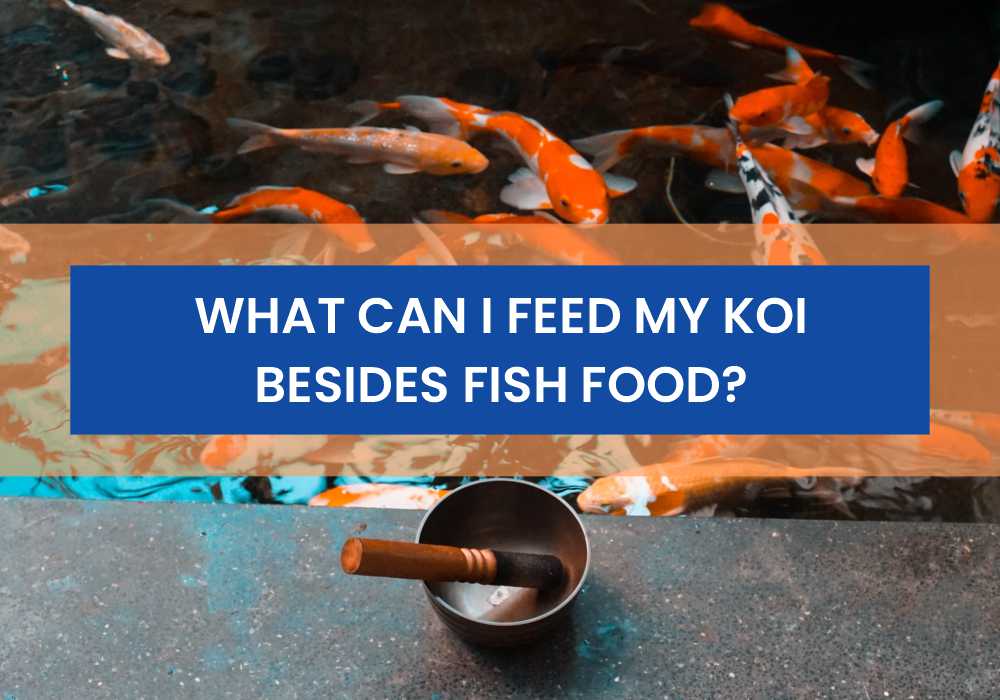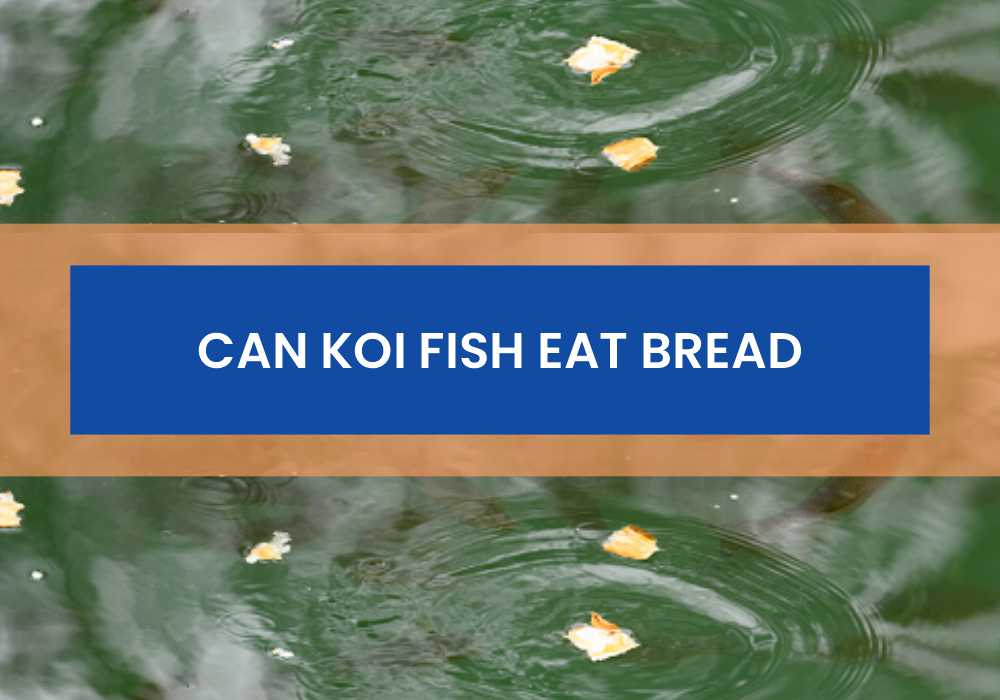As an Affiliate, We may earn a commission that doesn't cost you extra from qualifying purchases using links in this post. It helps keeps this blog running.
Koi fish are a beautiful and popular choice of ornamental fish for many pond owners. These fish are known for their vibrant colors and patterns, and they can live for many years with proper care. Many people choose to keep koi because of their peaceful nature and the fact that they can help control algae growth in ponds. But do koi fish eat algae? Read on to find out.
Koi are omnivorous, meaning that they will eat both plants and animals. In the wild, koi will feed on insect larvae, small crustaceans, and other small organisms. In captivity, koi will generally eat whatever is offered to them. This can include pellets, flakes, vegetables, fruits, and even live prey.
Is Algae good in a koi pond?
While algae are not necessarily bad for koi ponds, it can become a problem if it grows out of control. Algae can cause water quality issues and make your pond look unsightly. Although Koi will eat algae, they are not particularly efficient at controlling some algae growth. Therefore, it is important to take measures to prevent algae from taking over your pond in the first place.
If you do have a problem with algae and wondering if algae are good for fish ponds, there are several products on the market that can help you control it.
These include:
1) Algaecides: Algaecides work by killing algae (CHECK THEM OUT ON AMAZON)
2) Pond Dyes: Pond dyes block out the sun’s rays, which algae need to grow. (CHECK THEM OUT ON AMAZON)
Ultimately, whether or not you should add algae or let algae grow in your koi pond is up to you. Some people believe that a little bit of algae is good for the ecosystem, while others prefer to keep their ponds free of any kind of plant life. If you do choose to let algae grow in your pond, be sure to monitor it closely so that it does not get out of control.
Why is my koi pond getting algae? ( Why is my pond full of algae?)
There are a few reasons why your koi pond might be getting algae. Some common reasons why your pond is full of algae are:
- Too Much Sunlight: Algae thrive in sunlight, so if your pond is in an area that gets a lot of suns, it is more likely to get algae.
- Too Many Nutrients: Another reason for your pond is getting algae is too many nutrients in the water. This can be from overfeeding your fish, or from leaves and other organic matter decaying in the water.
- Poor Water Quality: Poor water quality can also make your pond full of algae. This can be due to a build-up of toxins in the water, such as ammonia or nitrites.
- Lack of Circulation: Lack of circulation can also cause algae to grow. This is because the water in the pond becomes stagnant causing debris, organism, dirt, and other particles to accumulate on the bottom. This can create an ideal environment for algae to grow.
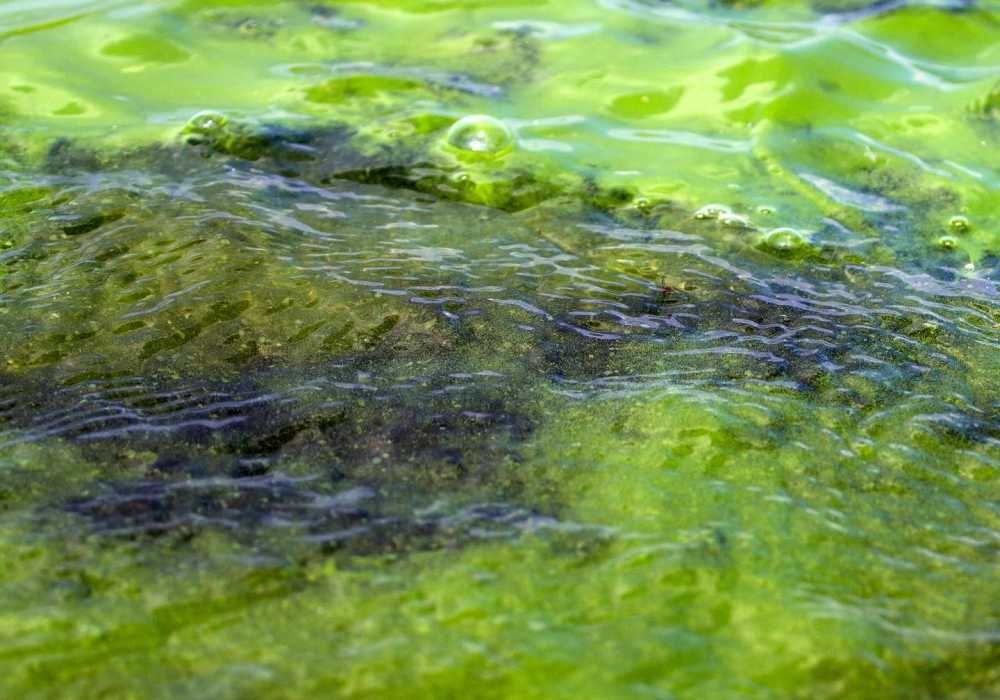
If you are still unsure of why your pond is getting algae, it is best to consult with a professional. They will be able to help you figure out the cause and come up with a plan to get rid of the algae.
Do Koi Fish Eat Algae?
Yes, Koi fish do eat algae. Algae can be a good source of nutrition for Koi fish, and they will often graze on it when it is available. However, Koi fish are not specifically designed to eat algae, and their diet should not be made up entirely of algae. A healthy diet for a Koi fish should include a variety of different foods, such as pellets, vegetables, fruits, and live food. Do not worry if your Koi fish nibble on some algae off rocks from time to time; this is perfectly normal behavior.
Koi fish are often considered to be a nuisance by gardeners and pond-owners because of the amount of vegetation they can consume. While it is true that Koi fish will eat almost anything aside from normal koi food, including plants and algae, they are actually very useful in controlling the growth of aquatic vegetation. In fact, many pond-owners use Koi fish specifically for this purpose. If you have a problem with too many algae in your pond, consider adding some Koi fish to help keep the growth under control.
Is It OK For Koi To Eat Algae?
Yes, it is perfectly natural and normal for koi to eat algae. In fact, many pond-owners actually encourage their koi to eat algae, as it can help to control the excessive growth of pond algae. However, koi should not be fed a diet consisting entirely of algae, as this can lead to health problems. A healthy diet for koi should include a variety of fresh foods, including vegetables, fruits, and high-quality koi pellets or flakes.
While algae may be a part of a koi’s natural diet, there are some types of algae that can be harmful to koi. Therefore, it is important to carefully research any type of pond algae before allowing your koi to eat it. Some types of algae can contain toxins that can make your koi sick. If you are unsure about whether or not a particular type of algae is safe for your koi to eat, it is always best to err on the side of caution and avoid feeding it to your fish.
Why Do Koi Eat Algae?
Koi eat algae for the same reason that they eat other types of aquatic plants, which is because it contains nutrients that they need in order to survive. Algae is a rich source of vitamins, minerals, and other nutrients that are essential to the health of koi. In addition, some algae can also help to cleanse a koi’s digestive system and promote healthy growth.
While some pond-owners may view algae as a nuisance, it is actually an important part of a koi’s diet.
What Kind Of Algae Do Koi Eat?
Koi will eat most types of algae, but there are some that they seem to prefer more than others. The five most common types of algae that koi eat are:
- Green algae
- Diatoms
- Carpet Algae
- String Algae
- Filamentous Algae
- Brown Algae
Koi will also occasionally eat other types of aquatic plants, such as watercress, duckweed, and coontail. However, these plants do not typically make up a large part of a koi’s diet.
What Kind Of Algae Should Koi Not Eat?
There are some types of algae that can be harmful to koi, so it is important to carefully research any type of pond algae before allowing your koi to eat it. Some types of algae can contain toxins that can make your koi sick. If you are unsure about whether or not a particular type of algae is safe for your koi to eat, it is always best to err on the side of caution and avoid feeding it to your fish.
Some of the most common types of toxic algae not to feed your Koi include:
- Blue-Green Algae
- Red Tide Algae
- Golden Algae
- Cyanobacteria
Can Koi Survive On Pond Algae?
While koi can survive on a diet of pond algae, they will not thrive. A diet consisting entirely of algae can actually lead to health problems in koi, such as malnutrition and digestive issues. In addition, algae-based diets do not provide koi with the variety of nutrients that they need to stay healthy. For this reason, it is important to supplement a koi’s diet with other fresh foods, such as vegetables, fruits, and high-quality koi pellets or flakes.
Can A Pond Have Too Many Algae?
While some pond algae are necessary for the health of koi, too many algae can actually be detrimental to the fish. Excessive growth of pond algae can lead to a number of problems, such as decreased oxygen levels in the water and the release of toxins that can harm or even kill koi.
In addition, an overabundance of pond algae can block out sunlight and make it difficult for koi to see potential predators. Therefore, it is important to carefully monitor the growth of pond algae and take steps to control it if necessary.
Should I Leave Algae In Pond?
Whether or not to remove pond algae is a decision that should be made based on the specific needs of your pond and your koi. In general, it is best to remove any type of algae that is causing problems, such as excessive growth or the release of toxins.
If you do decide to remove pond algae, there are a number of methods that you can use, such as:
- Manual removal: When removing pond algae manually, it is important to take care not to disturb the delicate balance of the ecosystem. In addition, all removed algae should be disposed of properly to avoid introducing new algae strains into the pond.
- Chemical treatment: Chemical treatment should be used as a last resort, as it can be harmful to koi and other aquatic creatures. If you do decide to use chemicals to remove pond algae, be sure to choose a product that is safe for use around fish and follow the directions carefully.
- Mechanical filtration: Mechanical filtration is a more effective and safer way to remove pond algae. This method uses a device, such as a filter, to physically remove algae from the water. mechanical filtration is often used in conjunction with other methods, such as manual removal or chemical treatment.
No matter what method you choose to remove pond algae, it is important to take steps to prevent new growth.
Ways to prevent and get rid of algae in a koi pond
There are several things you can do to prevent algae from taking over your koi pond.
Some things you can do to get rid of algae are:
- Maintain proper water quality: This means keeping the ammonia and nitrite levels low and maintaining a pH level between 7.0 and 8.5. You can test your water quality with test kits
- Keep the pond clean: Remove debris, such as leaves and dead fish, from the pond on a regular basis. A good rule of thumb is to clean the pond every two weeks.
- Add pond plants: Pond plants can help to shade the water and prevent algae from growing.
- Change the water: Every three to four months, you should change 20-50% of the water in the pond. This will help to keep the water clean and clear.
- Manual Removal: Another way to get rid of algae is to manually remove it from the pond.
@pondsbybee Treating a MAJOR string algae bloom 😬#algae #fishpond #pond #diy #ohno #fyp #koipond #swimpond #aquascape ♬ Oh No – Kreepa
If you already have Algaes living with your fish in their pond, there are several products on the market that can help you control and then get rid of them. These include:
- Algae Barriers: These products work by physically blocking sunlight from reaching the algae, which prevents it from growing. CHECK THEM OUT ON AMAZON
- Chemical Algaecides: These products kill algae by poisoning them. They are available in both liquid and granular forms and can be applied directly to the pond or mixed with the water.
- UV light sterilizers: These devices use ultraviolet light to kill algae cells. They are effective at controlling algae growth but can be expensive to run. CHECK THEM OUT ON AMAZON
By following these tips, you can help to prevent algae from taking over your koi pond.
Whatever method you choose to control and get rid of algae growth in your pond, make sure that you do not use products that are harmful to koi fish. Some algaecides and other chemicals can be toxic to koi, so always read the labels carefully before using any products in your pond.
Can you put algae eaters in a koi pond?
Yes, you can put algae eaters in a koi pond. However, it is important to choose the right type of algae eater for your pond because even though Koi fish themselves are Algae eaters, Some types of other algae eaters, such as goldfish, can actually end up doing more harm than good.
Goldfish are a common type of algae eater that is often used in ponds. However, they are not the best choice for a koi pond. This is because goldfish are omnivores, which means that they will eat just about anything – including koi food and koi fry. In addition, goldfish produce a lot of waste, which can lead to water quality problems in the pond.
A better choice for an algae eater in a koi pond is a herbivorous fish, such as a grass carp. Grass carp are large fish that eat mostly aquatic plants. They can grow to be over four feet long, so they will need a large pond to accommodate them.
Other good choices for algae eaters in a koi pond include tilapia and catfish. Both of these fish are herbivorous and do not pose a threat to koi fry or food.
No matter what type of algae eater you choose for your koi pond, make sure that it is a species that is compatible with koi. Some algae eaters, such as goldfish, can be aggressive towards koi fish and may even attack them.
When choosing an algae eater for your koi pond, it is also important to consider the size of your pond. Small ponds will not be able to support large fish, such as grass carp. In addition, you will need to make sure that there is enough food for the algae eaters. If the pond does not have enough algae, the algae eaters may starve.

I’m Akin Bouchard. Even though I now own several different fish species, I first became a koi pond owner because I loved these creatures and wanted to turn my passion into something more serious. I take pride in my collection of koi fish and love sharing my knowledge with others interested in these beautiful creatures.
A Comprehensive Guide to Training Your Fish to Perform Amazing Tricks Feats

